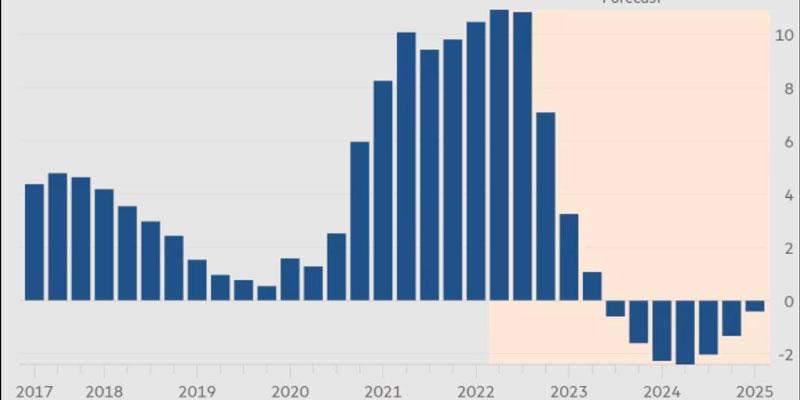Negotiation skills are paramount when buying a car. The ability to effectively negotiate can be the difference between paying a fair price for your car and overpaying. It not only ensures that you get value for your money but also provides an opportunity to leverage options like trade-ins and financing.
Know Your Worth
Before stepping into a dealership, it's important to arm yourself with knowledge. Do your homework and research the market value of the car you're interested in. There are numerous resources available online that can help you get an accurate price range. This information gives you a solid foundation to base your negotiations on and prevents you from being swayed by dealer prices.
Do Your Homework
It is essential that you are well-informed about the car you wish to purchase. Research the make, model, and the market value of the car. Use online resources, consult with car dealers, and get information about the car's mileage, fuel efficiency, and overall performance. This step equips you to gauge a realistic price range for the car, set your budget accordingly, and get an edge in negotiations.
Start Low
One key strategy in negotiation is to start at a price lower than what you're willing to ultimately pay. This gives you room to increase your offer if needed and allows you to remain within your predetermined budget.
Silence is Golden
Sometimes, being quiet is the best tactic. Let the dealer fill the silence. In doing so, they might inadvertently offer a lower price or additional features to close the deal quickly.
Be Ready to Walk Away
Never show desperation when negotiating. Keep in mind there are plenty of options available to you. If the dealer is not ready to meet your terms, be prepared to walk away. This can pressure the dealer into negotiating more favorably.
Check the Car's History
If you're considering buying a used car, it's crucial to dig into its past. Check the car's service history, previous ownership, and any accident records. Consult with a trusted mechanic if possible, to ensure you're not investing in a lemon.
Stay Calm and Composed
Remember, buying a car is a significant decision and a substantial investment. It's important to keep emotions in check during negotiations. Stay calm, composed, and objective. This will help you keep a clear mind, make rational decisions, and ultimately, make a successful transaction.
Assessing Your Budget

Knowing your budget is another important aspect of buying a car. It's essential to know not just what you can afford to buy, but also what you can afford to maintain. Factoring in expenses such as insurance, fuel, and ongoing maintenance can help you set a realistic budget and avoid financial strain.
Timing
Timing your purchase can greatly affect the car's price. Dealerships often have monthly, quarterly, and yearly goals, and buying a car towards the end of these periods can yield some great deals. Holidays are also an excellent time to buy a car, as dealers often have sales to attract customers.
Negotiation Techniques
Starting low gives you some wiggle room during negotiation. Initiate the negotiation with a low but reasonable price and be prepared to incrementally increase your offer. Using the silent treatment allows the dealer to fill the silence, often with a better offer. Lastly, be ready to walk away if the deal doesn't meet your expectations. This shows the dealer that you are not desperate and may lead them to provide a better offer.
Trade-Ins and Financing
If you have a car to trade-in, make sure you negotiate the price of the new car before bringing it up. This prevents the dealer from manipulating the prices to appear as though you're getting a good deal on your trade-in while overcharging for the new car. For car loans and financing, ensure you explore various options to get the best rates.
How do I know if I'm getting a good deal?
Researching the market value of the car before negotiations and setting your budget accordingly will give you a good idea of whether or not you're getting a good deal. Additionally, using online resources to compare prices between multiple dealerships can help you negotiate the best deal. With these tools, you can easily see if the price being offered is fair.
What if the dealer isn't willing to meet my terms?
If you are not satisfied with the deal, remain composed and be prepared to walk away. This shows that you are serious about negotiation and could pressure the dealers into offering a better price. Additionally, it is important to keep in mind that there are plenty of other options for you to explore.
Conclusion
To successfully negotiate the price of a car, arm yourself with knowledge about the car's market value, understand your budget, time your purchase strategically, and employ effective negotiation techniques. Also, ensure you appropriately handle trade-ins and financing options. Following these tips will help you get the best deal on your new car.
FAQs
Q: What is the best time to buy a car?
A: The months closest to the end of a quarter, such as March, June, September and December are generally good times to buy a car. Additionally, holidays like Independence Day and Labor Day often have sales that could net you great deals.
Q: Should I negotiate the price of my trade-in separately?
A: Yes, you should always negotiate the price of your new car separately from your trade-in. It is important to have a clear understanding of the cost of the new car before bringing up any trade-ins in order to avoid manipulation by the dealer.
Q: Is it worth it to get a car history report?
A: Absolutely. When buying a used car, getting a vehicle history report can be incredibly valuable for assessing the condition of the car and determining if it is worth investing in. It will provide you with information such as accident records, past service histories, any open recalls, and other important details. This information helps ensure that you don't buy a lemon.







